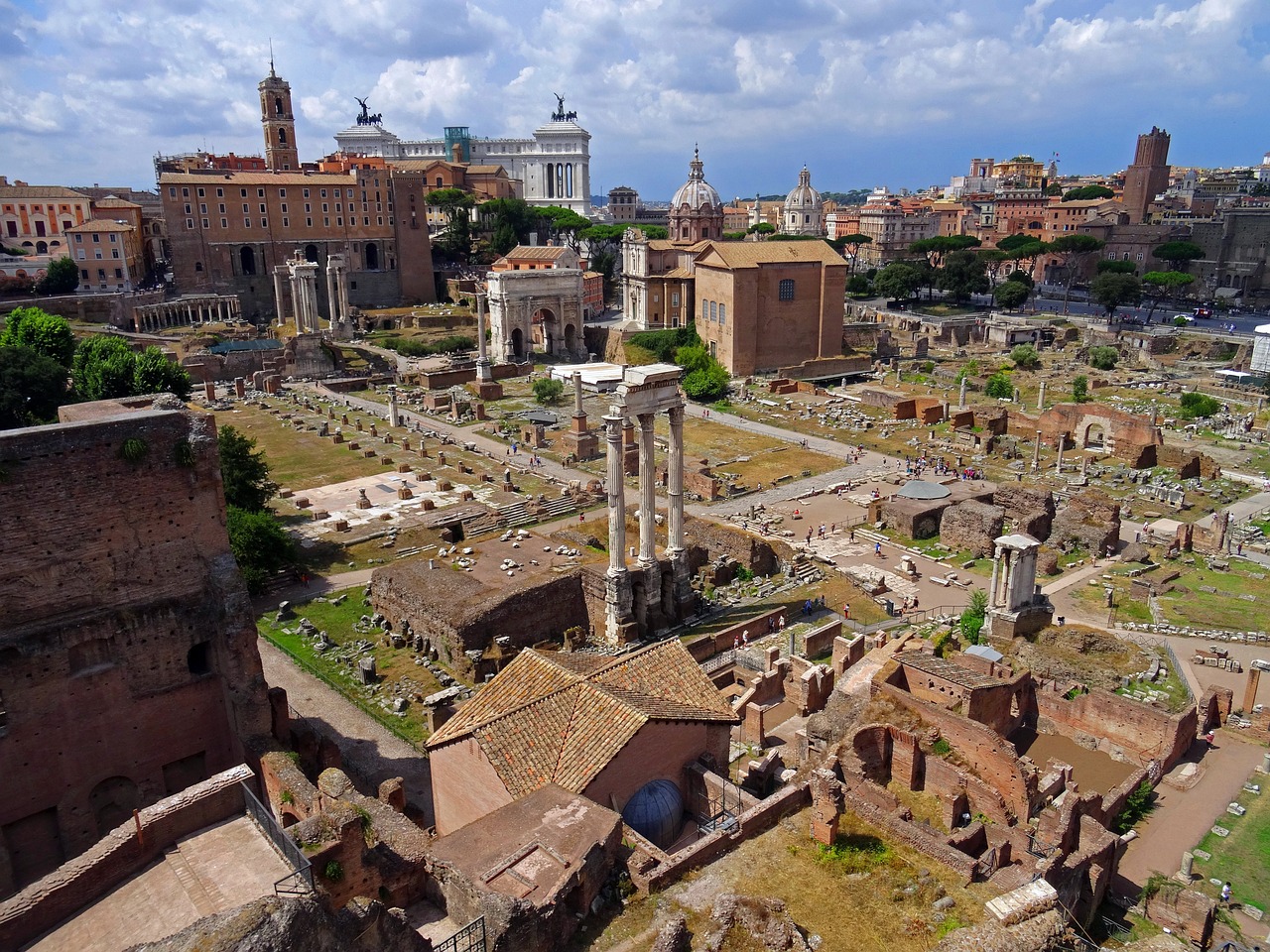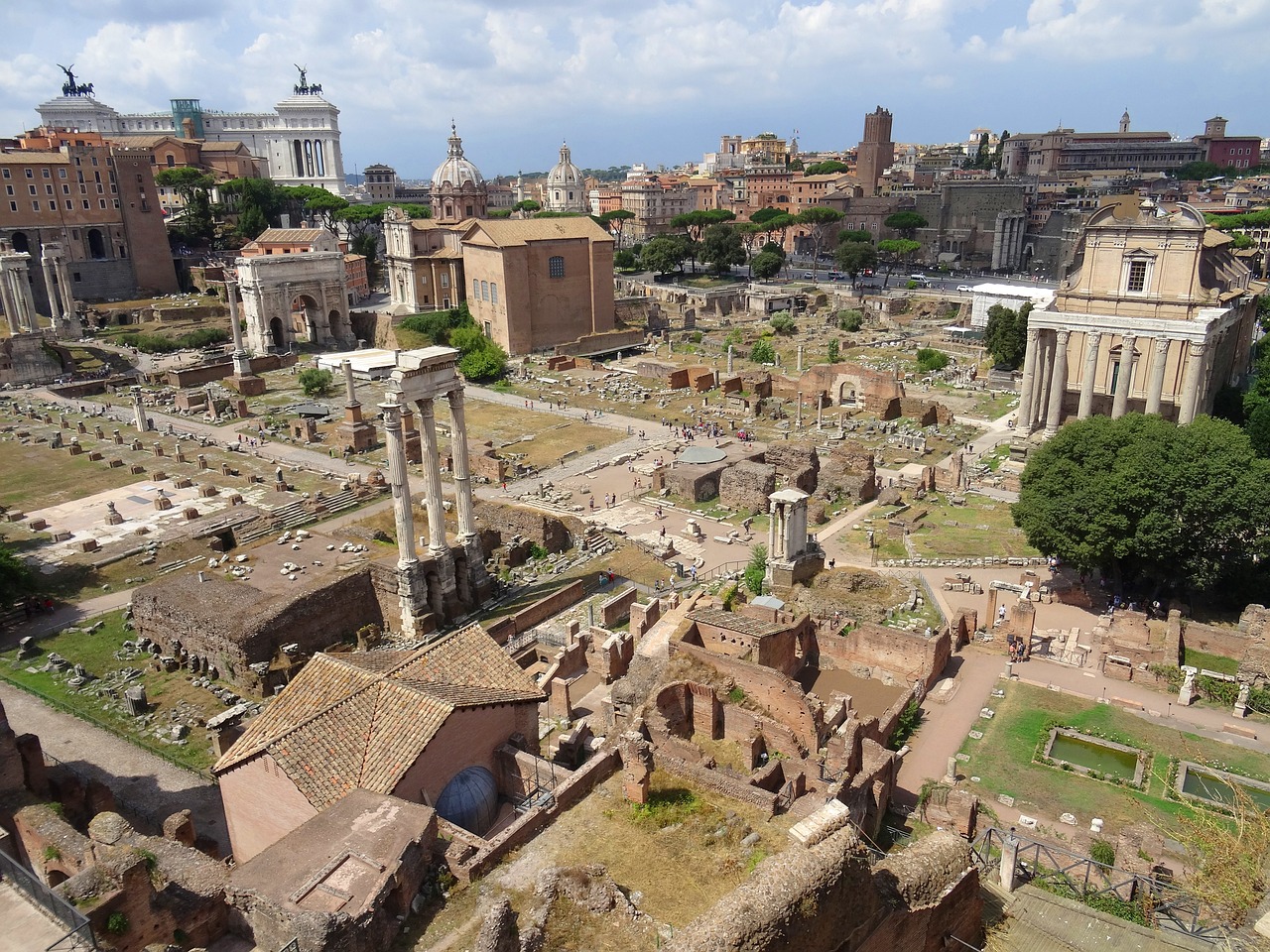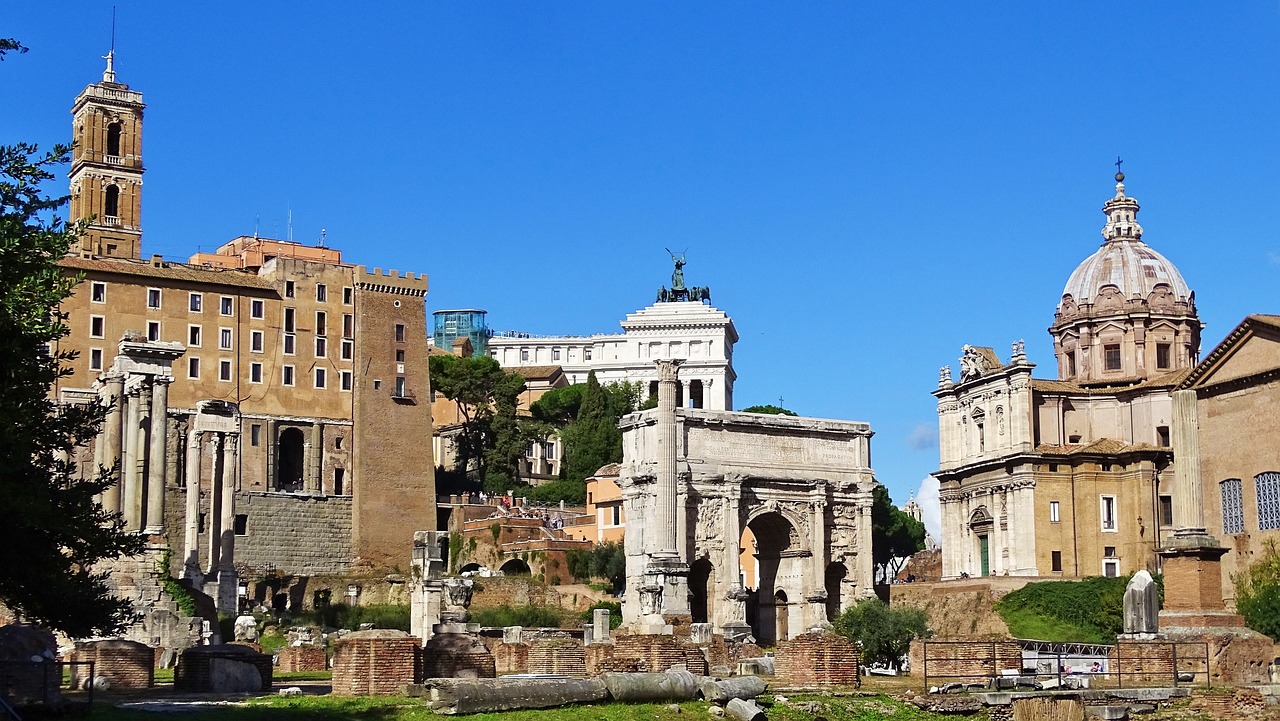The Enigma of the Ancient Roman Influence on Modern Law
Delving into the annals of legal history unveils a captivating mystery - the profound impact of Ancient Roman law on the modern legal landscape. The legacy of Roman jurisprudence echoes through time, shaping the very foundations of contemporary legal systems worldwide. As we embark on this journey of exploration, we unravel the enigma of how the ancient Romans laid the groundwork for the legal frameworks that govern societies today.

Foundations of Roman Law
Foundations of Roman Law: The roots of modern legal systems delve deep into the annals of ancient Roman jurisprudence. Roman law, with its intricate framework and profound principles, laid the groundwork for the development of legal systems across the globe. The foundation of Roman law was built upon the principles of justice, equality, and the rule of law, setting a standard that continues to resonate in contemporary legal frameworks.

Impact on Legal Systems
The impact of Roman law on modern legal systems is profound and far-reaching. By delving into the foundational principles of Roman law, we uncover a rich tapestry of concepts that have stood the test of time and continue to shape legal frameworks worldwide. From property rights to contracts, civil law to criminal justice, the legacy of Roman legal thought is omnipresent in contemporary jurisprudence.
One of the key areas where Roman influence is unmistakable is in the realm of property rights. The Roman concept of ownership, derived from the idea of dominium, laid the groundwork for modern property law. The notion of contractual obligations, rooted in Roman contract law, forms the basis of commercial transactions and legal agreements today.
Moreover, the development of legal institutions in ancient Rome, such as the Senate and courts, has parallels in modern governance structures. The hierarchical organization of Roman legal bodies has influenced the architecture of judicial systems around the world, emphasizing the importance of due process and the rule of law.
When examining the legacy of Roman law in criminal justice, we encounter a system that prioritized fairness, proportionality, and public order. The Roman approach to punishment, which aimed to deter crime while upholding individual rights, continues to inform contemporary debates on justice and rehabilitation.
In the realm of civil law, Roman principles have left an indelible mark on areas such as family law, property law, and tort law. The emphasis on legal rights and responsibilities, as well as the protection of vulnerable individuals, reflects the enduring influence of Roman legal thought in shaping societal norms.
Despite the dominance of common law traditions in many legal systems, the adaptation of Roman legal concepts remains evident. The challenge lies in reconciling the principles of civil law with the precedents of common law, highlighting the ongoing dialogue between ancient and modern legal frameworks.
As scholars continue to debate the extent and significance of Roman legal influence, one thing remains clear: the cultural and ethical implications of Roman law are profound. The values of justice, equity, and the rule of law that permeated Roman society continue to resonate in contemporary legal systems, underscoring the enduring relevance of ancient legal wisdom.

Development of Legal Institutions
The development of legal institutions in ancient Rome laid the groundwork for the sophisticated legal systems we have today. The Roman legal system was not just a set of laws but a complex network of institutions that governed society. At the heart of this system was the Senate, a governing body that played a crucial role in shaping and interpreting laws. The Senate acted as both a legislative and judicial body, making decisions on legal matters and overseeing the administration of justice.
Another key institution in Roman law was the courts, which were responsible for resolving disputes and dispensing justice. The Roman courts were known for their meticulous procedures and adherence to legal principles, setting a high standard for legal proceedings. Judges in ancient Rome were highly respected and held significant power in interpreting and applying the law.
Moreover, the legal profession in ancient Rome was well-established, with lawyers known as advocates who represented clients in legal proceedings. These advocates were skilled orators and legal experts who played a vital role in advocating for their clients' rights and interests. The role of advocates in Roman legal institutions contributed to the development of legal practice and the protection of individual rights.
Furthermore, the concept of legal precedent, known as jurisprudence, was integral to Roman legal institutions. Decisions made by judges in previous cases served as guidance for future legal proceedings, ensuring consistency and predictability in the application of the law. This emphasis on precedent in Roman law influenced the development of legal systems in later periods, including the establishment of common law traditions.
In conclusion, the development of legal institutions in ancient Rome was a testament to the sophistication and complexity of the Roman legal system. The Senate, courts, legal professionals, and the concept of jurisprudence all played crucial roles in shaping the legal landscape of the ancient world and laying the foundation for modern legal systems.

Legacy in Criminal Justice
The legacy of Ancient Roman law in the realm of criminal justice is profound and continues to shape contemporary legal systems globally. The Romans were pioneers in establishing a structured approach to criminal law, emphasizing the importance of fair trials, evidence-based judgments, and proportionate punishments. Their meticulous attention to legal procedures and the rights of both the accused and the victims laid the groundwork for modern criminal justice practices.
One of the most enduring legacies of Roman criminal justice is the concept of innocent until proven guilty, a principle that remains fundamental in legal systems worldwide. The Romans believed in the presumption of innocence and the burden of proof resting on the accuser, a notion that has transcended centuries and is enshrined in the legal systems of many nations today.
Furthermore, the Roman approach to punishment was characterized by a focus on rehabilitation rather than mere retribution. They recognized the importance of reforming offenders and reintegrating them into society, a concept that has influenced modern theories of criminal rehabilitation and restorative justice.
The Roman legal system also introduced the concept of due process, ensuring that individuals accused of crimes were afforded a fair trial with legal representation, the right to present evidence, and the opportunity to confront their accusers. These principles of procedural fairness and legal safeguards have become essential components of contemporary criminal justice systems.
Moreover, the Roman emphasis on impartial judges and the separation of powers within the judicial system have had a lasting impact on the independence and integrity of legal institutions. The establishment of courts with the authority to adjudicate disputes and mete out justice impartially reflects the Roman commitment to upholding the rule of law.
In examining the legacy of Ancient Roman law in criminal justice, it becomes evident that many of the foundational principles and practices established by the Romans continue to shape and inform modern legal systems. The enduring influence of Roman legal thought on concepts such as fairness, justice, and the protection of individual rights underscores the lasting significance of their contributions to the evolution of law and society.

Influence on Civil Law
The influence of Ancient Roman law on civil law systems is profound and far-reaching. Roman civil law principles have laid the foundation for various legal concepts that govern areas such as family law, property law, and tort law in contemporary legal frameworks. These principles have stood the test of time and continue to shape the way civil disputes are resolved and legal rights are protected.
One of the key aspects of Roman influence on civil law is the emphasis on property rights. Roman law recognized the importance of property ownership and established legal mechanisms to protect individuals' rights to their possessions. This concept has been integrated into modern civil law systems, ensuring that property rights are safeguarded and disputes are resolved fairly and justly.
Additionally, Roman legal principles related to family law have had a lasting impact on civil law systems. The Roman concept of patria potestas, which granted the head of the household extensive powers over family members, has influenced modern laws governing parental authority and familial relationships. This legacy can be seen in contemporary legal provisions that regulate issues such as guardianship, inheritance, and marital rights.
Moreover, Roman contributions to tort law have shaped the way civil wrongs and liabilities are addressed in modern legal contexts. The Roman notion of fault-based liability and the principle of restitution have been instrumental in defining the boundaries of civil responsibility and establishing remedies for harm caused by wrongful actions. These principles continue to guide civil law systems in determining liability, damages, and compensation for victims of civil wrongs.
In conclusion, the influence of Ancient Roman law on civil law is undeniable, with its enduring principles continuing to inform and guide contemporary legal systems. By examining and understanding the rich legacy of Roman legal thought, we gain valuable insights into the evolution of civil law and the enduring relevance of ancient legal traditions in shaping modern legal norms and practices.

Adaptation in Common Law Systems
Adaptation in Common Law Systems involves the intricate process of integrating Roman legal concepts into the framework of common law traditions. Common law, primarily developed in England, relies on judicial decisions and precedents rather than codified laws. The incorporation of Roman legal principles, which are based on written laws and systematic rules, presents a unique challenge in harmonizing the two systems.
One key area of adaptation lies in the concept of property rights. Roman law established clear guidelines for property ownership and transfer, emphasizing the importance of legal documentation. In common law systems, property rights are often defined through case law and customary practices, requiring a nuanced approach to reconcile with the Roman legal framework.
Additionally, the notion of contracts in Roman law, characterized by formalities and specific requirements, differs from the more flexible approach in common law. While common law allows for greater freedom in contract formation and enforcement, the influence of Roman contract law can be seen in the emphasis on mutual consent and consideration in modern legal agreements.
Moreover, the principles of civil law in Roman legal tradition, focusing on private rights and relationships between individuals, have influenced various aspects of common law, particularly in family law and tort law. The adaptation of these civil law concepts into common law systems requires a careful balance between preserving legal traditions and accommodating evolving societal norms.
Overall, the adaptation of Roman legal concepts in common law systems reflects the dynamic nature of legal evolution, where historical influences intersect with contemporary practices to shape the modern legal landscape.

Continuing Scholarly Debate
Within the realm of legal academia, the influence of ancient Roman law on modern legal systems continues to spark lively debate and scholarly discourse. Scholars and historians delve into the depths of history to unravel the intricate web of connections between Roman legal principles and contemporary jurisprudence.
One key point of contention revolves around the extent to which Roman legal concepts have directly shaped the legal frameworks we abide by today. Some argue that the foundational principles of Roman law, such as the emphasis on written laws and the establishment of legal procedures, have laid the groundwork for modern legal systems across the globe.
On the other hand, critics point to the evolution and adaptation of legal systems over time, highlighting the influence of other cultures and legal traditions that have also played a significant role in shaping modern laws. They question whether the impact of Roman law is overstated or if it truly stands as a cornerstone of contemporary legal thought.
Moreover, the ongoing scholarly debate delves into the nuances of specific legal concepts borrowed from Roman law and their interpretation in modern contexts. From the principles of equity and natural law to the intricate mechanisms of legal reasoning, scholars dissect the intricacies of Roman legal thought and its relevance in today's legal landscape.
As researchers continue to unearth new insights from ancient texts and legal documents, the scholarly debate surrounding the legacy of Roman law remains dynamic and multifaceted. Each discovery and interpretation adds a layer of complexity to the ongoing discourse, enriching our understanding of the enduring impact of Roman legal heritage.

Cultural and Ethical Implications
Delving into the cultural and ethical implications of Ancient Roman law unveils a tapestry of values and norms that continue to resonate in contemporary society. The Romans, known for their emphasis on order, hierarchy, and justice, laid the groundwork for ethical conduct and societal norms that have endured through the ages.
One of the most profound cultural legacies of Roman law is the concept of justice itself. The Romans believed in the importance of upholding the law and ensuring that justice was served. This emphasis on fairness and accountability has permeated modern legal systems, shaping our understanding of right and wrong.
Furthermore, the Romans placed a high value on family and community, principles that continue to influence societal structures today. The concept of patria potestas, or paternal power, underscored the authority of the head of the household, a notion that can be seen in modern family law frameworks.
Additionally, Roman law introduced the notion of property rights and ownership, laying the foundation for modern property law. The Roman emphasis on contractual agreements and the sanctity of agreements has shaped contemporary contract law, emphasizing the importance of honoring commitments.
From an ethical standpoint, Roman law promoted values such as integrity, honor, and duty. The Roman virtue of virtus, encompassing courage, honesty, and moral excellence, continues to be a guiding principle in ethical discourse.
Moreover, the ethical implications of Roman law extend to the realm of citizenship and responsibility. The Romans valued civic duty and participation in the governance of society, a concept that echoes in modern democratic principles and the importance of civic engagement.
As we reflect on the cultural and ethical implications of Ancient Roman law, we are confronted with a legacy that transcends time and borders. The principles and values instilled by the Romans continue to shape our legal systems, ethical frameworks, and societal norms, illustrating the enduring influence of an ancient civilization on the fabric of modern society.
Frequently Asked Questions
- What are the key principles of Roman law?
Roman law is built on principles such as the rule of law, the importance of written laws, and the concept of legal equality for all citizens. These principles have influenced modern legal systems globally.
- How did Roman legal concepts impact contemporary legal frameworks?
Roman legal concepts, including property rights, contracts, and civil law, have had a profound influence on modern legal systems. They form the basis for many legal principles and institutions we have today.
- What is the legacy of Roman law in criminal justice?
The Roman approach to criminal law, punishment, and justice administration has left a lasting impact. Many aspects of Roman criminal justice are still relevant and studied in modern legal practices.
- How has Roman civil law influenced areas like family law and property law?
Roman civil law principles have shaped family law, property law, and tort law in contemporary legal systems. Concepts such as marriage, inheritance, and property ownership have Roman roots.
- What challenges arise in reconciling Roman legal concepts with common law traditions?
Integrating Roman legal concepts into common law systems presents challenges due to differing approaches and principles. Scholars continue to debate the compatibility and conflicts between the two legal traditions.



















